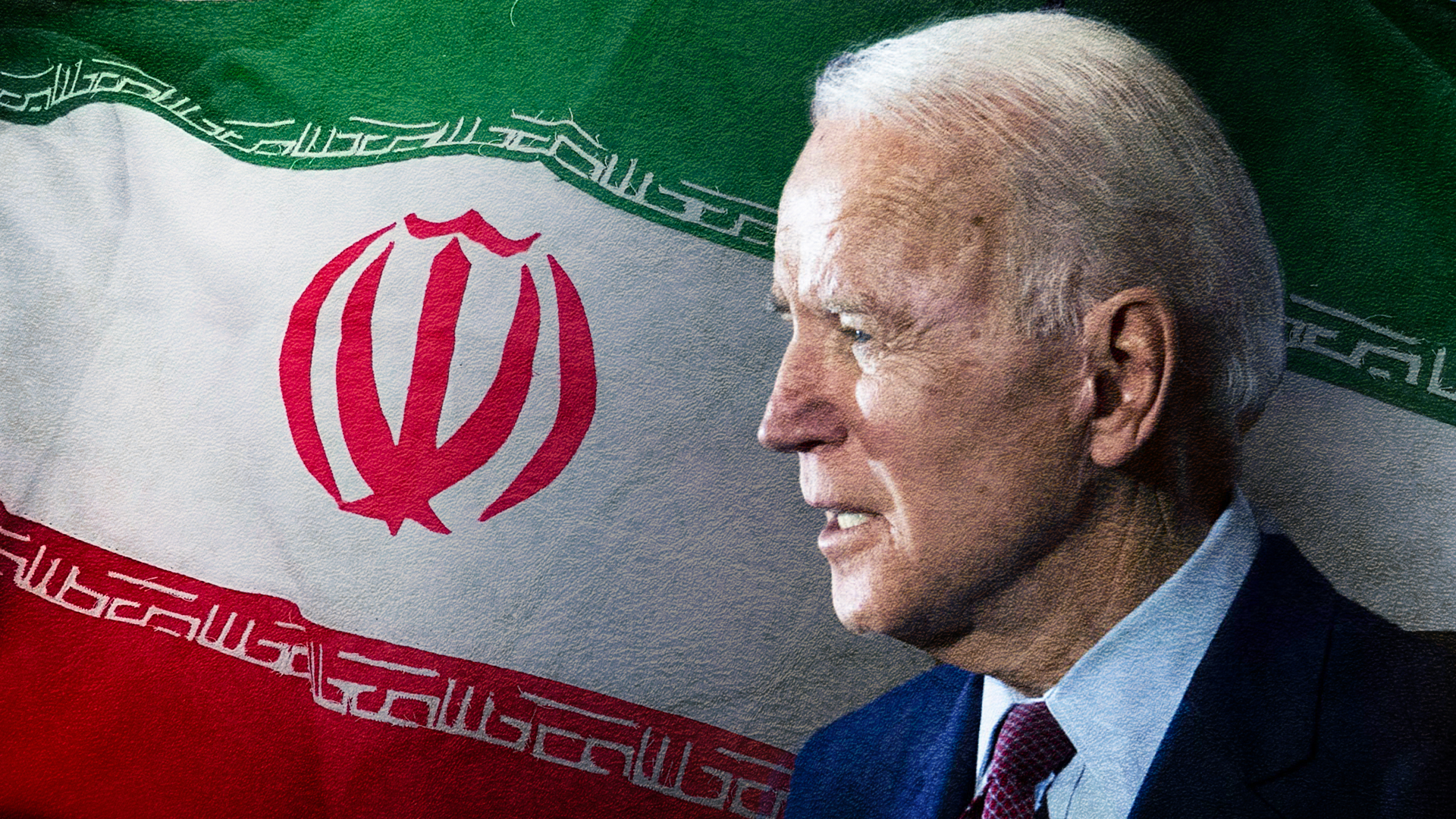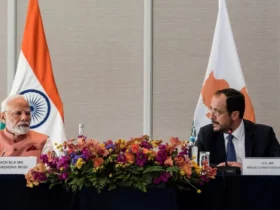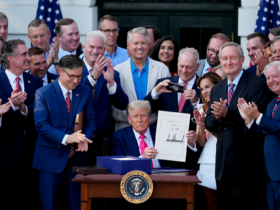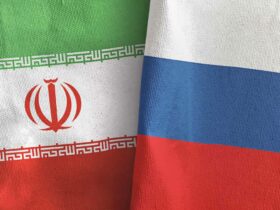The victory of Democratic Party candidate Joe Biden in the US presidential election seems as though it will lead to a change in American policy when it comes to Iran. Numerous experts claim that Joe Biden will return the US to the Joint Comprehensive Plan of Action (JCPOA) (nuclear deal) concluded in 2015.
Since Barack Obama’s team made the deal then, it would be logical to expect the US to return to the JCPOA under Obama’s former vice president, with whom many Obama administration representatives have returned to power.
In May 2018, Trump announced that the US was withdrawing from the JCPOA, which led to the reinstatement of US sanctions against Iran and, above all, the painful oil embargo. In January 2020, after the Americans killed Qasem Soleimani, the commander of the Iranian Revolutionary Guard Corps Quds Force, after which Iran declared that it would no longer comply with the JCPOA.
Biden program
At first glance, it seems that Biden’s arrival at the White House will improve relations between Washington and Tehran. Joe Biden said during the election campaign that “if Iran returns to strict compliance with the nuclear deal, the United States would rejoin the agreement as a starting point for follow-on negotiations.”
However, even then, he claimed that his position was “a smarter way to be tough on Iran”. Biden’s main idea was to claim that Trump, through his thoughtless actions, had strengthened the position of the conservatives in Iran, pushed Iran to develop nuclear weapons and rapprochement with Russia and Iran, and split Washington with its European partners.
Instead, Biden proposed returning to the JCPOA, while working with European partners to “extend the nuclear deal’s provisions” and “working aggressively to free unjustly detain Americans and calling out the regime for its ongoing violations of human rights.”
“We will continue to use targeted sanctions against Iran’s human rights abuses, its support for terrorism and ballistic missile program,” Biden has said.
According to Thomas Friedman, who interviewed Biden for the New York Times, Biden and his team will impose new conditions on Tehran following the reinstatement of the US’ involvement in the nuclear deal with Iran. First, the extension of restrictions on Iran’s production of “nuclear material that could be used to make a bomb – originally 15 years”, as well as “restrictions on Iranian activity in Syria, Yemen and Iraq.”
In addition, Biden intends to start working on measures that would allow him to impose restrictions on Iran’s missile program.
“In consultation with our allies and partners, we’re going to engage in negotiations and follow-on agreements to tighten and lengthen Iran’s nuclear constraints, as well as address the missile program.”.
“Look, there’s a lot of talk about precision missiles and all range of other things that are destabilizing the region,” Biden said.
Biden as a ‘good cop’
Sounds familiar, doesn’t it? It was these demands that Donald Trump made on Iran before withdrawing from the nuclear deal. For example, in January 2018, he called on Congress and European partners “to fix” the nuclear deal: to extend the time limits, the so-called “sunset” restrictions on Iran’s nuclear program and to tie restrictions on Iran’s missile program to the nuclear deal.
In the same way Trump stated that he intends to limit Iran’s “hostile” activities in the region. Essentially, Trump’s proposals and Biden’s proposals and their vision of Iran differ not strategically, but tactically.
Both see Iran as a threat to the interests of the United States and Israel in the Middle East. Both put forward the same specific goals – not to let Iran freely enrich uranium, to undermine its missile program, and prevent it from projecting force beyond its borders. Both suggest a combination of diplomacy and forceful pressure as tools to impose on the Iranians.
Donald Trump has imposed “anti-nuclear” sanctions on Iran, but has repeatedly said he is willing to offer Iran a path of diplomacy if Tehran simply agrees to his terms. Biden argues that if something goes wrong in negotiations with Iran, “the US always has the option to snap back sanctions if necessary be, and Iran knows that.”
The difference in these approaches is that Trump unilaterally invited Iran to surrender and accept all new conditions simultaneously. Biden, on the other hand, graciously demands that Iran swallow them one after the other, creating a chain of demands that will follow the return to JCPOA: first, return to the nuclear program, then restrictions on missiles, then prolonged restrictions on nuclear enrichment and more.
Agreeing to such a sequence of actions is the basic condition that the Biden administration puts forward to return to a nuclear deal. But in such a case, it would be not just a return on the terms of 2015, but on the terms of new, much less convenient for Iran. In fact, it will be on Trump terms.
Trump and Biden are playing good cop and bad cop like this is all some Hollywood movie. One pushes, the other smiles, but they both play on the same side and have the same goal.
Europe’s Position
What is important is that the US program to deter Iran under Biden is likely to find the support of European countries. Back in 2018, French President Emmanuel Macron said he was ready to work on a new nuclear agreement with Iran. The French President said that the new agreement should address four issues, including blocking any nuclear activities of Iran until 2025 and imposing a longer ban on work in this area, as well as ending Iran’s ballistic missile development program. In addition, Macron said a political solution must be found to deter Iran in the Middle East.
Also in 2018, German Foreign Minister Heiko Maas said he was concerned about the Iranian missile program and called for an end to the Iranian presence in Syria.
“In the end, we pursue the same goals with respect to Iran,” Maas said after his meeting with Mike Pompeo.
On November 23, 2020, Heiko Maas discussed in Berlin with his colleagues from the United Kingdom and France, Dominique Raab and Jean-Yves Le Drian, the prospects of preserving the JCPOA. The Europeans then accused Iran, not the US, of violating the JCPOA’s terms. Other topics of discussion were the missile program and Iran’s role in the region.
Under Trump, Iran could theoretically use the contradictions between the US and Europe for its purposes. Although Europeans were of little use in this regard either, they failed to create an effective mechanism for circumventing US sanctions.
After Joe Biden comes to power in the United States, the Americans will have the British, the Germans and the French on their side. This means that Iran will face pressure from the United West.
Iran will either have to make all the concessions that Joe Biden insists on, or face much more massive and internationally coordinated sanctions pressure than under Trump.
Israeli lobby and the Hawks
The relationship between the United States and Iran is not limited to a nuclear deal. The US has imposed heavy sanctions against Iran and done everything to undermine the government there. This is the goal of any administration, both Republican and Democratic.
In the future administration of Joe Biden, Jake Sullivan will take over as National Security Advisor. He played a major role in signing the 2015 deal. However, this does not mean that this politician will now favor Iran.
Sullivan now states that the US would return to JCPOA “if Iran returns to compliance … and is prepared to advance good-faith negotiations on these follow-on”. We are talking about the same agreements regarding Iran’s missile program and foreign policy.
As noted by the Politico:
“A former White House colleague noted Sullivan’s outreach to groups and think tanks like the Foundation for Defense of Democracies that vehemently opposed the Iran deal. FDD’s chief executive Mark Dubowitz, a harsh critic of the deal, has described Sullivan as the “sharpest guy on the [Iran] issue I know”.
Michèle Flournoy, who is most expected to be the Secretary of Defense in the Biden administration, opposed the removal of restrictions from Iran on humanitarian grounds during the Coronavirus pandemic .
“I don’t think we should be lifting sanctions on the regime, given their continued bad behavior, continuing to target Americans in Iraq and so forth,” Flournoy said.
As American journalist Max Blumentlal noted, Michele Flournoy in 2012 said that she participated in elaborating “the most serious sanctions ever put in place against any country on the face of the Earth” applied against Iran. She also informed about “robust” Pentagon planning for a military attack on Iran.
One of the main candidates for the post of CIA director under Joe Biden, Michael Morell said that the US “needs to make the Iranians pay the price in Syria” as well as the Russians by killing them “covertly”.
What is the difference between this proposal and the actions of Trump, who ordered the killing of Qasem Soleimani? Only that Trump openly assumes responsibility, and Democrats intend to kill Iranians “covertly”.
No less noteworthy is the figure of Avril Haines, who was proposed by Biden as the future director of national intelligence. It was Avril Haines, working in the Obama administration, who developed the so-called “presidential policy guidance”, which legalized drone killings abroad.
The same Haines worked on “a range of highly classified options for thwarting Iran’s nuclear program” . She, like other representatives of the Democratic party, criticized the assassination of Qasem Soleimani, but only because it was not agreed with Congress and the US’ allies.
They are not against the assassinations as a tool of US policy per se, but only believe that they should be better thought out.
Fakhrizadeh’s killing and the Israeli factor
On November 27, leading Iranian nuclear scientist Mohsen Fakhrizadeh was killed in Tehran. Iranian authorities blame Israel for the murder.
The murder of the Iranian nuclear scientist significantly complicates the return of the US and Iran to dialogue. Iran must take revenge, but any action against Israel will be perceived by any US administration as hostile. Biden himself, his vice president Kamala Harris and the future US Secretary of State Tony Blinken – are all supporters of Israel.
The current administration may use the new crisis with Iran to fuel new conflict and tensions, creating a situation from which the Biden administration will have difficulty getting out.
But even if that does not happen, the de facto Israeli lobby will continue to play an important role in shaping US policy under Democrats in power. This will have a significant impact on the United States’ policy toward Iran. Israel will insist on measures to isolate and deter Iran.
Iranian skepticism
Finally, an important factor in future US-Iranian relations will be the collapse of the reformist government in Iran itself.
President Hassan Rouhani won the 2017 presidential election on a wave of excitement and hope associated with the nuclear deal. However, the United States, especially the actions of Donald Trump, has shown the Iranians that there is no sense in negotiating with Washington. Iran made significant concessions, and the US refused to honor the agreement and withdrew from it. Instead of flourishing, Rouhani ‘s second term and his team of reformists brought economic problems and sanctions to the Iranians, resulting in mass protests.
Washington’s policy reaffirmed the rightness of those in Iran who had been skeptical of negotiating with the U.S. since the beginning. The rapprochement with the West has given Iran nothing, and now the West is once again trying to mislead Iran by imposing new concessions in exchange for a return to the nuclear deal.
However, any Iranian government will hardly make any compromises with the West. Besides, no one guarantees that in 4 years the Republicans and even Donald Trump himself will not return to power in Washington and will not withdraw from the nuclear deal again.
Although President Rouhani wished the new US administration “to learn from the past three-year experience,” and Iranian foreign minister, Javad Zarif, said on November 17 that a return to full implementation of the nuclear deal by the United States and Iran can be “done automatically” and “needs no negotiations”, the Supreme Leader Ayatollah Ali Khamenei plays a key role in determining Iran’s policy. He also said that it does not matter for Iran who wins the US elections.
In addition, according to Khamenei, since attempts to achieve the abolition of anti-Iranian sanctions by negotiations have not led to anything, Tehran is considering a more promising way of not removing sanctions, but rather “nullifying & overcoming them”.
The position of the Supreme Leader will undoubtedly be reflected in the policy of any Iranian president towards the US. It will be harder for Iran to make concessions. Tehran is unlikely to agree to what the United States is now proposing by linking the return of the deal and the lifting of sanctions to the start of a new negotiation process on missiles and other issues.
Iran has full right to develop missiles as well as buy them from foreign countries (from China, Turkey or Russia). It’s the issue of national security since Saudi Arabia, Israel and the USA themselves buy and develop new missile complexes.
In addition, Iran understands that Europe will be on America’s side in these talks, which significantly reduces the possibility of diplomatic maneuver for Iran.
In June 2021 presidential elections will be held in Iran, where representatives of traditionalist and patriotic forces are likely to come to power. The reformers have lost the trust of the people. In this case, the prospects that Iran will make concessions for Biden will be next to zero.
Thus, we can approach the following conclusions:
- Despite the election rhetoric of Biden’s team, the goals of his administration with regard to Iran coincide with the strategic goals of the Trump and Israel administrations. Biden will pursue the same goals as Trump (which is why he left the nuclear deal) – to surrender Iran’s foreign policy positions and limit its missile weapons. Only methods will be partially different.
- Israeli hawks and lobbyists in Biden’s administration, and Biden himself, are ready for new sanctions against Iran and the continuation of the policy of targeted assassinations.
- At the same time, the European participants in the JCPOA are inclined to support Biden’s pressure. It is playing against Tehran, which can no longer exploit American-European disagreements.
- Iran, after the US’ withdrawal from the JCPOA, is now less inclined to compromise and will not be inclined to it in the future when conservatives come to power.
- All of this creates extremely unfavorable circumstances for a reset of the JCPOA and any warming of relations between Iran and the United States. It is unlikely that this mechanism can be restarted and that it will be sustainable. Iran should expect new pressure measures from the US, which will be interspersed with an imitation of diplomacy.
- Contrary to popular expectations both inside and outside Iran, Biden’s coming to power in the US will not open up new opportunities for Iran, only further complicating the country’s positions on the global stage.

















Leave a Reply